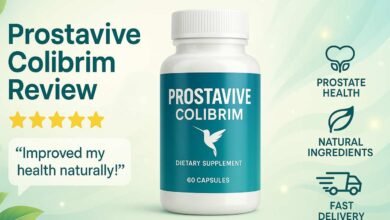Nourishing Your Gut: The Key to Enhanced Health and Vitality

Introduction
In recent years, the gut has emerged as more than just a digestive organ—it’s now seen as a powerful control center for overall health. Often referred to as the body’s “second brain,” the gut influences everything from mood and immunity to energy levels and mental clarity. This is thanks to the gut-brain axis and the trillions of microbes that live within the digestive tract, working silently but powerfully to keep your body balanced.
As science continues to uncover the deep connection between gut health and total wellness, more people are turning their attention inward. Supporting your gut doesn’t require an extreme overhaul—small, consistent changes in diet and lifestyle can make a big impact. This guide explores how to recognize when your gut needs help and offers simple strategies to strengthen it, unlocking benefits that go far beyond digestion.
The Gut: Your Body’s Command Center
Recently, the gut has earned recognition as a foundational pillar of health. Many experts call it the body’s “command center,” given how it influences systems beyond digestion. The gut isn’t just responsible for breaking down food and absorbing nutrients—it also communicates continuously with other organs, including the brain. This network, known as the gut-brain axis, helps regulate mood, energy, and immune responses. Scientists are learning that up to 70% of the immune system resides in the gut, linking digestive health to protection against illness. When you nourish your gut, you’re not just supporting regularity; you’re empowering your entire body to function at its best.
For many people, the first step toward feeling better can be as simple as paying more attention to their digestive health. A well-balanced gut can help you enjoy better concentration, steadier moods, clearer skin, and even more restful sleep. Countless individuals have found inspiration in bio complete 3 reviews, which frequently discuss real-life improvements in digestion and well-being after simple, targeted lifestyle changes. While everyone’s gut microbiome is unique, the core science is precise: focusing on gut health is a powerful way to increase vitality and quality of life. By incorporating fiber-rich foods and probiotics and reducing processed ingredients, you can start to shift your gut microbiome in a positive direction. Consistency is key as small daily habits can lead to lasting transformations over time. Ultimately, prioritizing gut health is an investment in your long-term energy, resilience, and overall wellness.
Signs Your Gut Needs Support
Your digestive system often sends clues when something is off balance. These signals are not limited to stomach discomfort or irregularity. Common symptoms of gut imbalance include persistent bloating, gas, heartburn, and intermittent diarrhea or constipation. However, the signs don’t stop there. Brain fog, low energy, frequent sugar cravings, weight fluctuations, and even skin problems like rashes and acne have all been traced back to gut health issues in many individuals.
Mood swings and increased anxiety or stress are frequently associated with a poorly functioning gut. This is because neurotransmitters like serotonin, which regulate mood and happiness, are produced largely in the digestive tract. Paying close attention to these physical and emotional signs can empower you to make changes before minor discomfort turns into more serious health issues. Journaling your meals and symptoms can help you spot patterns—this self-awareness is a valuable tool in your wellness toolkit.
Fiber: The Unsung Hero of Digestive Health
Few nutrients are more beneficial—and often overlooked—than fiber when it comes to digestive health. Fiber creates an environment where the helpful gut bacteria can thrive. Soluble fiber dissolves in water, forming a gel-like consistency that helps regulate blood sugar and lower cholesterol while nourishing the microbes in your digestive system. Insoluble fiber, on the other hand, doesn’t break down in the digestive tract. Instead, it adds much-needed bulk to your stool, making it easier for your body to eliminate waste efficiently.
Experts have repeatedly confirmed the health benefits of fiber. According to research from the National Institutes of Health, a high-fiber diet protects against gut inflammation, which can prevent or ease symptoms of conditions like irritable bowel syndrome (IBS) and even some autoimmune issues. Fiber-rich foods include beans, legumes, lentils, berries, leafy greens, avocados, and whole grains. Incorporating various foods regularly can contribute to increased microbiome diversity—one of the hallmarks of a truly healthy gut.
Fermented Foods and Probiotics
Fermented foods are a natural, delicious way to support gut health. These include foods like yogurt, kefir, kimchi, sauerkraut, miso, and kombucha—all teeming with good bacteria known as probiotics. When you eat these foods, you introduce healthy microorganisms directly into your digestive tract. These bacteria crowd out harmful microbes, help digest food, synthesize essential nutrients, and even modulate the immune system.
Incorporating diverse fermented foods into your diet can lead to greater gut resilience and more consistent digestion. While probiotic supplements are widely available, food-based sources provide a broad spectrum of beneficial bacteria and other crucial nutrients such as calcium, protein, and antioxidants. Aiming for at least one serving of fermented food daily is a simple strategy for most people, supporting both digestive and overall health without resorting to highly processed products.
Prebiotics: Feeding Your Friendly Bacteria
While probiotics are live beneficial bacteria that you can add directly to your gut, prebiotics are the sustenance these microbes need to flourish. Prebiotics are special types of non-digestible fiber found in plant-based foods. They pass through the upper digestive tract unchanged, finally arriving in the colon, where good bacteria ferment them into short-chain fatty acids—compounds linked to reduced inflammation and improved gut barrier function.
Some of the best prebiotic foods include garlic, onions, leeks, asparagus, Jerusalem artichokes, ripe bananas, and oats. Including prebiotics in your daily meals helps the beneficial microorganisms in your system multiply and become more effective. This dynamic partnership between fiber and probiotics creates an internal environment where your digestive tract can heal, rebuild, and maintain its resilience over time.
Lifestyle Habits for a Healthy Gut
Diet is a major driver of gut health, but your daily routines matter too. Sleep, movement, and stress levels all significantly impact your microbiome’s balance. Sleep isn’t just crucial for energy; poor sleep can reduce the diversity of gut bacteria and increase inflammation. High stress amplifies the release of stress hormones, which can disrupt digestion, slow gut motility, and degrade the gut wall lining over time.
Even small changes can bring benefits. Deep breathing exercises, meditation, or walking can help regulate stress levels and improve sleep quality. According to Medical News Today, chronic stress and sleep disturbances can negatively impact the gut microbiome. However, adopting mindful lifestyle changes like improving sleep hygiene and reducing stress can help restore balance. Combining stress reduction with better sleep routines creates the optimal internal environment for beneficial bacteria to thrive and protects your body from chronic inflammation. Establishing these routines as part of your lifestyle can lay the groundwork for digestive and emotional wellness.
Small Changes That Make a Big Difference
Overhauling your gut health doesn’t require a radical transformation. Start with gradual changes you can stick with day in and day out. Swap white bread or pasta for whole grain alternatives for a fiber boost. Add an extra vegetable to each meal, or try topping yogurt with berries and seeds. Keep easy snacks like cut veggies, roasted chickpeas, or a spoonful of sauerkraut in your fridge so you have gut-friendly options within arm’s reach.
- Include overnight oats or chia pudding topped with fruit for breakfast
- Pack in a salad or vegetable soup at lunch to increase prebiotic intake
- Try a new fermented food like kimchi, tempeh, or pickled vegetables each week
- Hydrate consistently, as water works with fiber to promote healthy digestion
- Focus on variety, rather than perfection, to keep your meals interesting and nutritious
Whenever you make a new choice that supports gut health, celebrate those wins. Over time, these small, consistent habits accumulate, leading to lasting vitality and whole-body health improvements.
Listening to Your Gut and Seeking Professional Guidance
Your body is incredibly wise—it knows what it needs, and it often communicates through subtle signs. Tracking digestive symptoms, mood swings, and dietary habits can help you recognize trends and empower you to make course corrections as needed. While most digestive issues will resolve with simple changes, persistent pain, blood in stool, unexplained weight loss, or severe disruptions always warrant professional attention.
Consulting with a qualified healthcare provider or registered dietitian can help you identify food allergies, intolerances, or underlying medical conditions that warrant further investigation. They can guide you in personalizing your approach, ensuring any changes are safe and effective for your lifestyle. Remember, prioritizing your gut is not just about comfort; it’s an investment in mental clarity, disease prevention, and living life as your healthiest self.




